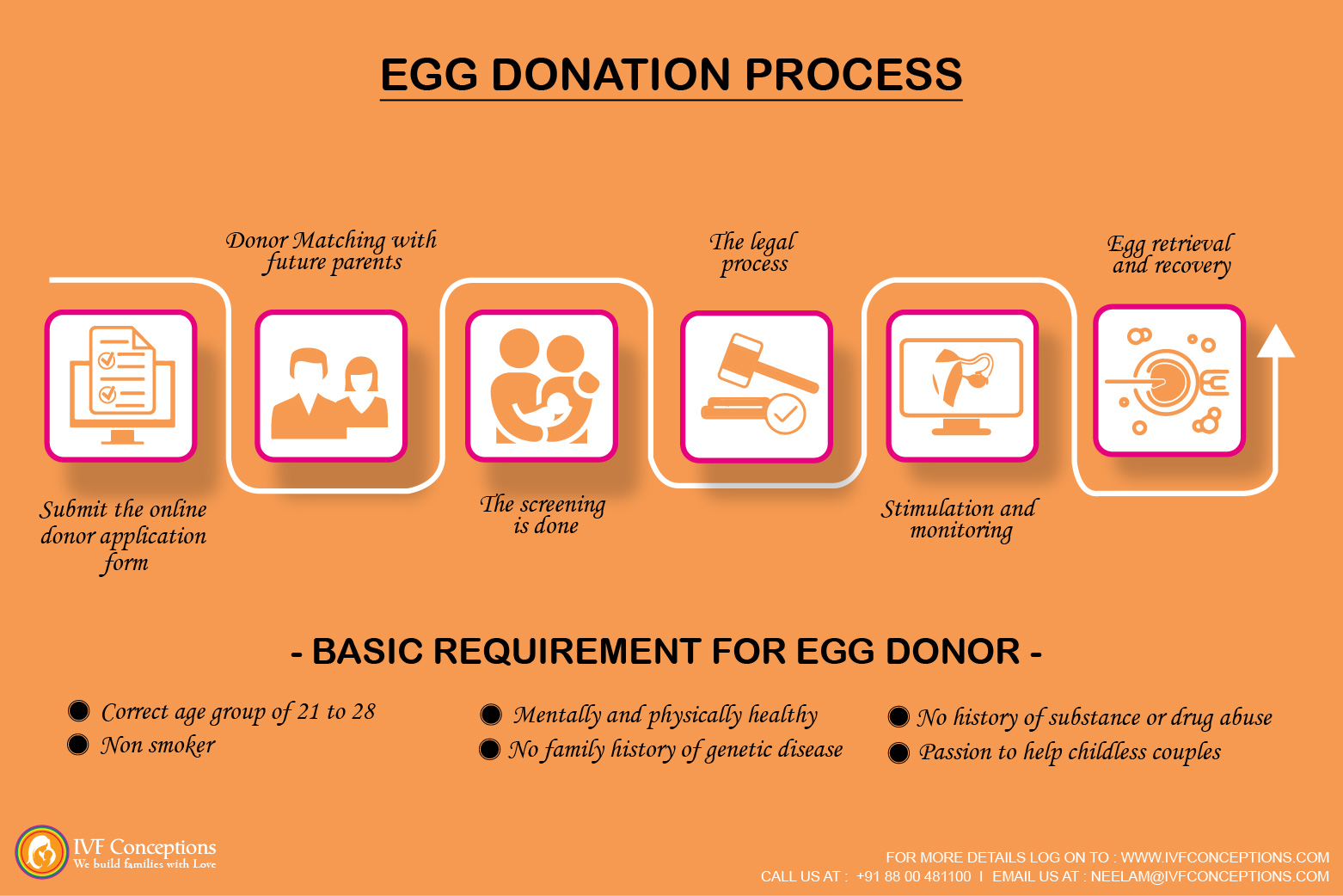
Surrogacy with egg donations is a rapidly growing method of assisted reproduction that has gained significant attention in recent years. This complex process involves a woman carrying a baby for another individual or couple, using eggs donated by a third party.
The concept of surrogacy with egg donations has sparked ethical and legal debates, but for many couples struggling with infertility or same-sex couples, it provides a viable option to start a family. With advancements in medical technology and the increasing acceptance of non-traditional family structures, surrogacy with egg donations has become a popular choice for individuals and couples around the world.
However, it also brings forth a multitude of questions and considerations, making it essential for those considering this option to be well-informed and fully understand the process.
In this article, we will delve into the world of donor egg surrogacy, exploring its history, process, potential benefits and challenges, and legal implications. Whether you are considering becoming an egg donor, a surrogate, or an intended parent, this article will provide a comprehensive overview of this unique method of family building.
More resources for gay surrogacy:
Surrogacy options for same-sex couples
Affordable gay surrogacy destinations
LGBT-friendly surrogacy agencies
Introduction – Definition of surrogacy with egg donation
 Surrogacy with egg donation is a reproductive option that combines the concept of surrogacy and the use of donated eggs to assist individuals or couples in their journey to parenthood.
Surrogacy with egg donation is a reproductive option that combines the concept of surrogacy and the use of donated eggs to assist individuals or couples in their journey to parenthood.
It involves a process where an individual or couple (intended parents) utilize the services of a surrogate mother who carries and delivers the baby, while the eggs used for conception are provided by a separate donor.
Assisted Reproduction Technique like IVF is used to create the embryos with the help of an egg donor ( not the intended mother). The practice of surrogacy with egg donation has a rich history, with the first successful live birth using this method occurring in 1984. Since then, it has gained increasing recognition and popularity as a viable option for those facing infertility challenges.
The importance of surrogacy with egg donation lies in its ability to offer hope and a chance at biological parenthood to individuals and couples who may otherwise have limited options. However, it is essential to consider the cost of egg donor surrogacy, as it can vary depending on various factors such as location, medical procedures, legal fees, and the compensation provided to the surrogate and egg donor.
Surrogacy costs resources worldwide:
Top 4 cheapest countries for surrogacy
Best Countries for Surrogacy 2023- Top International Destinations
Risks of international surrogacy
Global International Surrogacy Options
IVF Conceptions Surrogacy Prices & Plans ( in 2023)
Low-cost surrogate mother in Argentina
Low-cost surrogate mother in Kazakhstan
How Does Surrogacy With Egg Donations Work?
In the process of surrogacy with egg donation, several key steps and medical procedures are involved. The journey begins with the selection and screening of both the intended parents and the egg donor. This ensures that all parties involved are physically and emotionally prepared for the process. Once the suitable egg donor is chosen, she undergoes ovarian stimulation to produce multiple eggs for retrieval.
During this time, the surrogate mother is also thoroughly evaluated to ensure her suitability for carrying a pregnancy. Following the egg retrieval, the donor eggs are fertilized with the sperm of the intended father or a donor through in vitro fertilization (IVF). The resulting embryos are then carefully monitored and assessed for quality.
The next step involves the transfer of the selected embryo(s) to the surrogate mother’s uterus. This is typically done through a minimally invasive procedure known as embryo transfer. The surrogate mother undergoes hormonal support to prepare her uterus for implantation and to support a successful pregnancy.
Throughout the surrogacy journey, it is crucial to have legal agreements in place to protect the rights and responsibilities of all parties involved. Legal aspects include the establishment of parentage, consent for medical procedures, financial arrangements, and agreements regarding the role of the surrogate mother.
It is important to note that the cost of surrogacy with egg donation can vary depending on various factors such as the location, medical procedures involved, and legal requirements. Consultation with fertility clinics and legal professionals specializing in reproductive law can provide more accurate information regarding the costs and fees associated with this process.
Overall, surrogacy with egg donation offers a promising opportunity for individuals and couples to fulfill their dreams of parenthood, albeit with careful consideration of the medical, emotional, and legal aspects involved. The surrogacy process takes 18 months to 24 months depending upon the individual circumstances Outlines the surrogacy process timeline for gay intended parents:
| Stage | Description of Stage | Duration |
| Research Phase | Explore family-building options and decide on surrogacy. | Personal timeframe |
| Consultation and Application | Choose a surrogacy agency, sign an agreement, and start embryo creation (if needed). | 1-3 Months |
| Matching | The agency finds and presents potential gestational carriers. Meet and decide on a match. | 3-6 Months |
| Medical Screening and Contracts | Carrier undergoes medical and psychological screening. Sign a surrogacy contract. | 1-2 Months |
| Embryo Transfer | Prepare for embryo transfer. Success may take multiple attempts. | 1-1.5 Months |
| Pregnancy | Gestational carrier’s pregnancy, approximately 40 weeks. | 9-10 Months |
| Birth and Postpartum | Baby’s birth, establish parental rights, and postpartum period. | 1.5-3 Months |
Please keep in mind that the durations mentioned in the table are approximate and can vary depending on individual circumstances and other factors. Always consult with a reputable surrogacy agency or professional to get personalized guidance throughout the surrogacy journey.
Surrogacy with Egg Donor – Criteria for selecting an egg donor
When considering surrogacy with egg donation, it is important to carefully consider the criteria for selecting an egg donor. The intended parents may have specific requirements and preferences in mind, such as physical characteristics, educational background, and medical history.
It is crucial to work with a reputable surrogacy and egg donor agency or clinic that thoroughly screens and evaluates potential egg donors. There are different types of egg donors to choose from, including anonymous donors from egg banks or known donors such as family members or friends. Each option has its benefits and considerations. Anonymous donors offer privacy and a wider selection, while known donors may provide a sense of genetic connection.
It is essential to weigh the pros and cons and select the option that aligns best with the intended parents’ needs and values. Using an egg donor can provide numerous benefits for individuals or couples who are unable to conceive with their own eggs. It expands the possibilities for achieving a successful pregnancy and creating a family.
When embarking on the journey of surrogacy with egg donation, understanding the criteria for selecting an egg donor, the types of egg donors available, and the benefits and risks involved is crucial for making informed decisions. It is advisable to consult with experienced professionals who can guide and support you throughout the process.

Surrogacy With Egg Donor Cost
Factors that affect the cost of surrogacy with egg donation can vary depending on several key factors.
- Firstly, the geographic location plays a role, as different countries and regions have different laws and regulations that can impact the cost.
- The qualifications and experience of the surrogate and the egg donor also play a significant role in determining the overall cost.
- Additionally, any additional medical procedures, such as in vitro fertilization (IVF) or embryo transfer, can contribute to the total expenses.
On average, the cost of surrogacy with egg donation can range from tens of thousands to over a hundred thousand dollars. Surrogate egg donor costs in the USA can vary from $150,000 to $200,000. This includes fees for the surrogate and egg donor, legal expenses, medical procedures, psychological evaluations, and agency fees.
It is important to note that these costs may vary depending on individual circumstances and the specific requirements of the intended parents. International egg donor surrogacy costs can range in between $50,000 to $70,000 based on what all services are included. To help alleviate the financial burden, there are various financing options available for surrogacy with egg donation. Some fertility clinics or agencies offer payment plans or financing options to assist intended parents in managing the expenses over time.
Additionally, some organizations provide grants or scholarships specifically dedicated to assisting individuals and couples pursuing surrogacy. When considering surrogacy with egg donation, it is crucial to carefully evaluate the financial aspects and explore the available financing options.
Consulting with a reputable fertility agency or clinic can provide guidance and support in navigating the cost considerations and exploring the most suitable financing solutions for each individual’s or couple’s unique situation.
Conclusion
In conclusion, surrogacy with egg donation is a complex and costly process that involves multiple factors. The cost of surrogacy with egg donation can vary depending on geographic location, the qualifications and experience of the surrogate and egg donor, as well as any additional medical procedures required.
The average cost ranges from tens of thousands to over a hundred thousand dollars, including fees for the surrogate and egg donor, legal expenses, medical procedures, psychological evaluations, and agency fees. Despite the high costs involved, surrogacy with egg donation provides a valuable opportunity for individuals and couples to fulfill their dreams of having a child.
If you’d like to learn more about IVF, Egg Donation, or surrogacy services globally, check out the rest of our website at IVF Conceptions. We offer legally secure and affordable surrogacy consulting services for FREE.
Our team has over 13 years of experience facilitating surrogacy arrangements, egg donation, and serving as an advocacy resource for infertile couples and LGBTQ individuals seeking to build families.
Our founder and chief surrogacy consultant, Neelam Chhagani, passionately helps couples struggling with fertility challenges. Since starting our surrogacy consulting agency in 2013, we’ve helped welcome over 500 babies for intended parents nationwide.
Our team includes experts from diverse backgrounds with leading reproductive attorneys, professionally trained top fertility doctors, former surrogacy case managers, experienced and kind surrogate mother and egg donor coordinators, mental health professionals specializing in infertility counseling, and a logistic support team to assist you in your chosen surrogacy country.
FAQ
What is the process of surrogacy with egg donations, and how does it differ from traditional surrogacy?
Surrogacy with egg donations involves the use of a gestational surrogate who carries the pregnancy, while the eggs used for fertilization are donated by another woman. This process is different from traditional surrogacy, where the surrogate is also the biological mother of the child. In surrogacy with egg donations, the intended parents can be genetically related to the child, as they can use their own sperm or a donor’s sperm for fertilization. This method allows individuals or couples who cannot conceive or carry a pregnancy to have a child with a genetic connection.
What are the legal and ethical considerations surrounding surrogacy with egg donations?
The legal and ethical considerations surrounding surrogacy with egg donations vary across countries and jurisdictions. In some places, there may be strict regulations in place to protect the rights of all parties involved, such as the surrogate, intended parents, and the egg donor. These regulations may cover issues such as the eligibility criteria for surrogacy, financial compensation, informed consent, and the rights and responsibilities of each party. Ethical considerations revolve around ensuring the well-being and autonomy of the surrogate, protecting the rights of the child, and preventing exploitation or commodification of women’s reproductive capacities. It is important to carefully navigate these considerations to ensure a fair and ethical surrogacy arrangement.
How are egg donors selected and screened for surrogacy purposes, and what criteria are typically used?
Egg donors for surrogacy purposes are typically selected and screened based on various criteria. These may include age (typically between 21-30 years old), physical and mental health assessments, genetic screening, and fertility evaluations. Donors may also undergo interviews, background checks, and psychological evaluations to ensure they understand the process and have no underlying issues that could impact their suitability as donors. Additionally, donors may be required to provide a detailed medical history and undergo tests for infectious diseases. The selection and screening process aims to ensure the health and well-being of both the donor and intended parents, as well as to maximize the chances of a successful pregnancy and healthy child.
What are the potential emotional and psychological implications for the surrogate mother and the egg donor in surrogacy with egg donations?
The potential emotional and psychological implications for the surrogate mother and the egg donor in surrogacy with egg donations can vary greatly. For the surrogate mother, there may be a range of emotions, including attachment to the child growing inside her, grief upon giving the child to the intended parents, and potential feelings of emptiness or loss after the surrogacy journey is over. The egg donor may experience a sense of loss or curiosity about the child that resulted from their donation, and may also have concerns about their own fertility or genetic connection to the child. Both parties need to receive adequate emotional support and counseling throughout the surrogacy process.
Are there any specific medical risks or complications associated with surrogacy using donated eggs, and how are these managed during the process?
Surrogacy using donated eggs carries some potential medical risks and complications. These can include ovarian hyperstimulation syndrome, multiple pregnancies, ectopic pregnancy, and the psychological impact on the surrogate. Medical professionals closely monitor the donor’s response to ovarian stimulation medications and adjust the dosage if needed to minimize the risk of ovarian hyperstimulation syndrome. To reduce the likelihood of multiple pregnancies, only a limited number of embryos are transferred. The risk of ectopic pregnancy is managed through regular monitoring and early detection. Psychological support is also provided to the surrogate throughout the process to address any emotional concerns. Overall, careful medical supervision and support are essential in managing these potential risks and complications.
